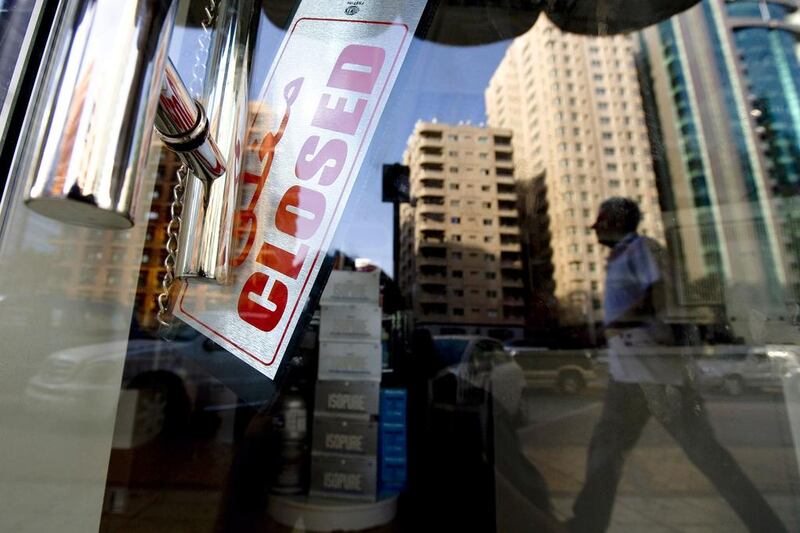“Should I stay or should I go” sang Mick Jones of The Clash back in the 1980s. No, this isn’t another Brexit piece, because to make it so, I’d have had to have murdered the immortal lyric to say “Should I have stayed…”; but every entity in the UK, and everyone outside it with commercial links to Britain, is now considering how the Brexit fallout will affect their businesses.
Many who voted to leave are now thinking we should have stayed. In the UK, there are hiring freezes, growth plans have been put on hold and talk of recession is rife. Videos on social media of a wide-eyed Private Frazer from Dad’s Army warning “We’re doomed” have gone viral. The mood is dark.
Meanwhile in the UAE, there is also talk of exit: even before the EU referendum result, more and more articles have been appearing in the media here about how expatriates are leaving the country, unable or unwilling to cope with the rising cost of living. I myself personally know several people returning home for this reason. The financial attractions of working in a tax-free jurisdiction are not what they used to be, and are being further eroded by a government needing to balance books upended by the falling oil price. This, of course, has nothing to do with Brexit.
International organisations in the region already feeling the pinch of such an environment may be faced with a similar choice. For many of those also affected by Brexit, it will have become a more urgent one to make. However, the criteria applied in reaching a decision to stay or go are slightly different: while financial considerations will drive both individuals and businesses, the individuals’ priorities are personal, in terms of their finances and the happiness of their families. They are unlikely to care too much about what they are leaving behind, because their focus will be on the next stage of their careers and their new lives, either back in their home country or elsewhere.
It’s not the same for business. Financial considerations are clearly the top priority and companies will be looking anxiously at both top and bottom lines. Unlike individuals choosing to leave, though, businesses with operations in the region also need to consider the longer term ramifications of closing them down from a strategic perspective. The GCC is fundamentally a thriving and growing economic region, and its long term prospects remain healthy, notwithstanding the current environment. Although their GDP forecasts have been adjusted downwards, they would still make many countries in the developed world envious.
This is especially true of the UAE: its tourist and financial services sectors are still growing, Expo 2020 is less than four years away and the country’s innovation efforts, especially Dubai’s, are being recognised all over the world. The UAE is also the only country in the GCC to have an active nuclear power programme at the construction stage (and one which is expected actually to be producing electricity next year). By many commentators’ reckoning, the current cost-saving measures are necessary, sensible and well timed, and will set the platform for all these initiatives to have an even stronger effect on the economy. As for Brexit, the general feeling here is that it will have a positive effect on trade with the UK. On the very day of the result, Sheikh Mohammed bin Rashid, Vice President and Ruler of Dubai, very publicly and very pointedly stated that the UK had been a friend of the UAE before it entered the EU, and would remain so after it had left.
International businesses with operations in the UAE would therefore do well to remind themselves of the rewards of a long-term approach, and the downside of leaving. Closing down may address short-term cost issues, but future opportunities will be lost, because once you’ve gone, you’re unlikely to be welcomed back. Longevity and loyalty are highly valued by Arabic people and although the emphasis is increasingly on empowering and promoting local talent and local business, there is still opportunity for international companies who have a long history in the region, understand its traditions and dynamics and who can genuinely add value.
The answer to Mick Jones’ question should be obvious.
Archie Berens is the managing director of Bell Pottinger Middle East.






